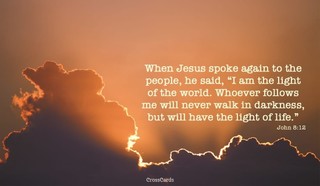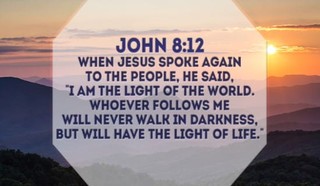
Change Translation
- Recent Translations
- All Translations
Yochanan 8:17
Share
Listen to Yochanan 8:17
Settings
Scripture Text Size
17
And it has been written even in your Torah, that the edut (testimony) of two is ne’emanah. [Dt 17:6; 19:15]
Yochanan 8:17 Meaning and Commentary
John 8:17
FOOTNOTES:
F25 Maimon. Hilchot Eduth. c. 5. sect. 1.
F26 Misn. Maccot. c. 1. sect. 7.
F1 Bartenora in ib.
F2 Maimon. Hilchot Eduth, ib. sect. 2.
It is also written in your law
The law of Moses, which was given unto them, and they boasted of; the passage referred to is in ( Deuteronomy 19:15 ) ; see also ( Deuteronomy 17:6 ) ; where though what follows is not to be found in so many words, yet the sense is there expressed:
that the testimony of two men is true:
concerning which the Jewish writers say F25,
``they used not to determine any judiciary matter by the mouth of one witness, neither pecuniary causes, nor causes of life and death, as it is said, ( Deuteronomy 17:6 ) . It is asked F26 in their oral law, if the testimony of two men stand, why does the Scripture particularly mention three? (for no other reason) but to compare or equal three with two, that as three convict two of a falsehood, two may also convict three.''On which one of their commentators F1 has this observation, taking notice of ( Deuteronomy 19:18 ) , which speaks of a single witness;
``Mar (a doctor) says, wherever it is said a "witness", it is to be understood of two, unless the Scripture particularly specifies one.''In the case of a wife suspected of adultery, and in the business of striking off the neck of the heifer in case of murder, they admitted of one witness F2.
F25 Maimon. Hilchot Eduth. c. 5. sect. 1.
F26 Misn. Maccot. c. 1. sect. 7.
F1 Bartenora in ib.
F2 Maimon. Hilchot Eduth, ib. sect. 2.
Taken from John Gill's Exposition of the Bible
Unlock Deeper Insights: Get Over 20 Commentaries with Plus! Subscribe Now
Yochanan 8:17 In-Context
15
You judge according to the basar; I do not judge anyone. [1Sm 16:7]
16
But even if I judge, my psak din, my mishpat, is emes, because it is not I alone but the One having sent me, HaAv.
17
And it has been written even in your Torah, that the edut (testimony) of two is ne’emanah. [Dt 17:6; 19:15]
18
Ani Hu the one giving solemn edut (testimony) about myself and the One having sent me, HaAv, gives solemn edut about me.
19
Therefore, they were saying to Rebbe, Melech HaMoshiach, Where is HaAv of you? In reply, he said, You have da’as of neither me nor HaAv of me. If you had had da’as of me, you would have had da’as of HaAv of me.
The Orthodox Jewish Bible fourth edition, OJB. Copyright 2002,2003,2008,2010, 2011 by Artists for Israel International. All rights reserved.

